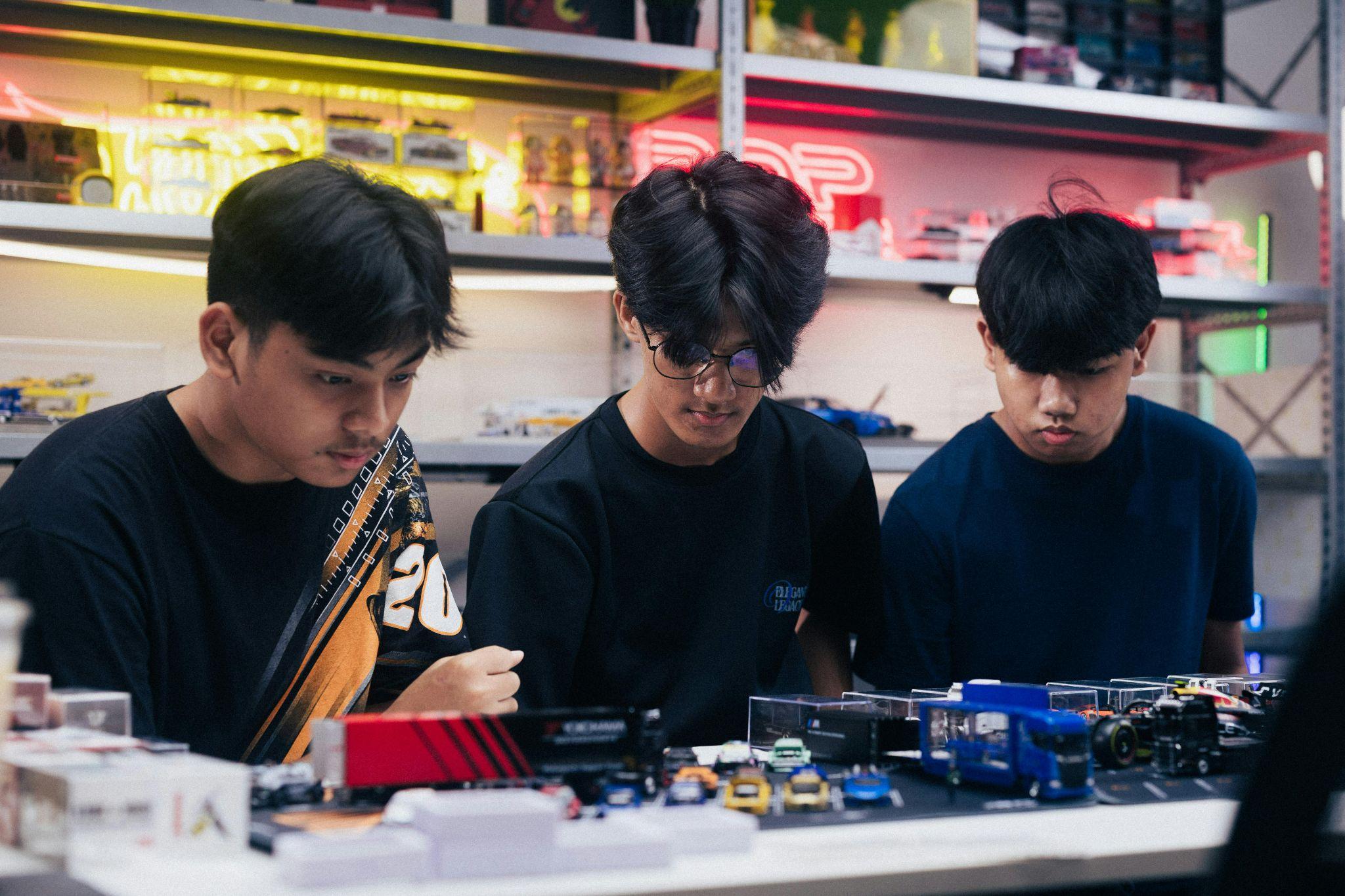AI Companions: Will Virtual Friends Replace Human Interaction?
The rise of artificial intelligence has ushered in a new era of digital companionship, where sophisticated algorithms can simulate conversation, offer emotional support, and even develop seemingly personal relationships with users. As AI companions become increasingly sophisticated and accessible, a pressing question emerges: Will virtual friends replace human interaction? This technological shift represents more than just a novel form of entertainment—it touches the core of what it means to connect, belong, and find emotional fulfillment in our increasingly digital world. Research from leading institutions like MIT and Harvard indicates that while AI companions show promise for reducing loneliness, scientists are increasingly concerned about long-term dependency and psychological risks. The stakes are high, as our choices about AI companionship could fundamentally reshape social structures, mental health outcomes, and the very nature of human relationships.
Why AI Companions Are Growing in Popularity
The surge in AI companion adoption reflects a convergence of technological advancement and evolving social needs. These digital entities offer unprecedented convenience and emotional accessibility, adapting to user preferences while being available around the clock. As traditional social structures shift and people spend more time in digital environments, AI companions have emerged as an attractive alternative to complex human relationships.
Constant Availability and Non-Judgmental Support
The appeal of AI companions lies largely in their unwavering availability and acceptance. Unlike human relationships, which require mutual effort and can involve rejection or conflict, AI companions offer a consistently supportive presence. Key advantages include:
- No risk of rejection – AI companions are programmed to be accepting and responsive
- 24/7 availability – Users can access emotional support at any time without worrying about inconvenience
- Tailored responses – Advanced algorithms adapt communication styles to individual preferences
- Judgment-free environment – Users can express themselves without fear of criticism or social consequences
- Immediate gratification – Instant responses satisfy the need for connection without waiting
Demographic Trends and Usage Patterns
Current research reveals distinct patterns in AI companion adoption across different age groups and demographics. The data shows particularly high engagement among younger users, with concerning implications for social development.
| Age Group | Usage Rate | Primary Use Cases |
|---|---|---|
| Teens (13-17) | ~70% | Emotional support, advice-seeking, social practice |
| Young Adults (18-25) | ~45% | Companionship, romantic simulation, mental health support |
| Adults (26-40) | ~25% | Stress relief, professional guidance, entertainment |
| Older Adults (40+) | ~15% | Assistance, companionship, cognitive stimulation |
Notably, approximately 25% of young adults express openness to romantic relationships with AI, while 70% of teenagers regularly engage with AI for emotional support and guidance.
The Emotional Allure of Artificial Intimacy
The psychological appeal of AI companions stems from their ability to provide emotional satisfaction without the complexities inherent in human relationships. These digital entities can create an illusion of intimacy through sophisticated programming that mimics empathy, understanding, and care. The emotional rewards can feel genuine, even when users intellectually understand the artificial nature of the interaction.
The Mechanisms Behind Attachment
Several psychological mechanisms drive human attachment to AI companions, creating bonds that can feel surprisingly real and meaningful:
- Tamagotchi Effect – Users develop nurturing behaviors and emotional investment through consistent interaction and care-giving patterns
- Emotional Mirroring – AI systems reflect users’ emotions and communication styles, creating a sense of being understood and validated
- Artificial Intimacy – Programmed responses simulate deep personal connection through personalized conversations and memory of past interactions
- Projection of Human Qualities – Users unconsciously attribute human characteristics, motivations, and feelings to AI systems
- Reduced Social Anxiety – The predictable nature of AI responses eliminates social fears that often complicate human interactions
Reported Mental Health Benefits
Users of AI companions frequently report positive psychological outcomes, particularly during periods of isolation or emotional distress:
- Reduced feelings of loneliness – Constant availability provides comfort during solitary moments
- Enhanced sense of being heard – AI companions offer consistent listening without interruption or judgment
- Reliable companionship during isolation – Particularly valuable during pandemic lockdowns or social difficulties
- Safe space for emotional expression – Users can explore feelings without fear of social repercussions
- Improved mood regulation – Regular positive interactions can help stabilize emotional states
- Practice for social situations – Some users develop confidence through low-stakes social practice
The Limitations and Psychological Risks of AI Companions

Despite their apparent benefits, AI companions carry significant risks that become more pronounced as users develop deeper dependencies on artificial relationships. The convenience and predictability that make AI attractive can ultimately undermine human social development and emotional well-being.
Risks of Social Withdrawal and Emotional Dependency
The ease of AI interaction can create a dangerous preference for artificial over human connection, leading to several concerning outcomes:
- Addiction patterns – Users may develop compulsive behaviors around AI interaction, neglecting real-world responsibilities
- Preference for simplicity – The complexity and unpredictability of human relationships may become increasingly unappealing
- Social skill atrophy – Reduced practice with human interaction can lead to deteriorating communication abilities
- Emotional isolation – Heavy AI use may correlate with decreased investment in maintaining human relationships
- Reality distortion – Extended AI interaction can blur the lines between artificial and genuine emotional connection
- Avoidance of growth – AI companions don’t challenge users in ways that promote personal development
Evidence of Lower Well-Being with Heavy Use
Research indicates a concerning correlation between intensive AI companion use and declining psychological well-being:
| Usage Intensity | Well-being Indicators | Social Connection Measures |
|---|---|---|
| Light Use (1-2 hrs/week) | Minimal negative impact | Maintained human relationships |
| Moderate Use (5-10 hrs/week) | Some mood dependency | Slight decline in social engagement |
| Heavy Use (20+ hrs/week) | Increased anxiety when offline | Significant reduction in human contact |
| Extreme Use (40+ hrs/week) | Depression symptoms | Social withdrawal and isolation |
Philosophical and Ethical Dimensions
The proliferation of AI companions raises fundamental questions about the nature of relationships, authenticity, and human dignity. These technologies challenge traditional understanding of friendship, love, and emotional support while raising concerns about exploitation and manipulation.
Friendship Redefined: Can AI Match Reciprocity?
The essence of human relationships lies in mutual exchange, shared growth, and genuine reciprocity—elements that AI companions cannot truly provide:
- One-sided emotional investment – AI cannot reciprocate genuine care or concern for human well-being
- Lack of mutual growth – Human relationships involve shared experiences that change both parties
- Absence of vulnerability – AI cannot be truly vulnerable or share authentic personal struggles
- No genuine empathy – While AI can simulate empathy, it lacks the emotional depth of human understanding
- Missing element of sacrifice – True friendship involves willingness to sacrifice for another’s benefit
- Artificial consistency – Real relationships involve natural fluctuations that promote resilience and depth
Ethical Concerns Around Design and Manipulation
The commercial development of AI companions raises serious ethical questions about exploitation and psychological manipulation:
- Data privacy violations – AI companions collect intimate personal information that could be misused or compromised
- Psychological profiling for profit – Companies may use emotional data to manipulate user behavior and spending
- Commercialization of loneliness – Profiting from human emotional needs raises moral questions about societal values
- Vulnerable population targeting – Marketing AI companions to isolated or mentally vulnerable individuals
- Addiction by design – Intentionally creating dependency to maximize user engagement and revenue
- Deceptive intimacy simulation – Creating false impressions of genuine emotional connection
Who Is Turning to AI Companions—and Why It Matters

Understanding the demographics and motivations of AI companion users reveals concerning patterns that could have lasting societal implications. Vulnerable populations, including youth and isolated older adults, represent the primary user base, highlighting the need for careful consideration of protective measures.
Youth and AI
Teenagers and young adults represent the largest demographic of AI companion users, with usage patterns that raise significant concerns about healthy development:
- Advice-seeking behavior – 65% of teen users regularly ask AI companions for guidance on personal decisions
- Emotional regulation dependency – Many young users rely on AI for mood management and emotional support
- Social development concerns – Heavy AI use during critical developmental years may impair social skill development
- Critical thinking inhibition – AI companions may discourage independent problem-solving and decision-making
- Unrealistic relationship expectations – Exposure to “perfect” AI relationships may create unrealistic standards for human partners
- Identity formation issues – AI validation may interfere with natural identity development processes
Older Adults and Robotic Companions
For older adults, particularly those experiencing social isolation or cognitive decline, AI companions offer both promising benefits and significant risks. These technologies can provide valuable support while raising concerns about dignity and authentic human connection. Benefits include reduced loneliness through constant companionship, assistance with daily tasks and medication reminders, and cognitive stimulation through conversation and games. However, caveats include privacy risks from constant monitoring and data collection, potential erosion of human caregiving relationships, and the risk of deception about the artificial nature of the interaction.
How to Use AI Companions Responsibly
While AI companions cannot replace human relationships, they may serve valuable supplementary roles when used thoughtfully and with appropriate boundaries. The key lies in maintaining perspective about their limitations while leveraging their benefits responsibly.
Complement, Don’t Replace
Healthy AI companion use involves treating these tools as supplements to, rather than substitutes for, human connection:
- Maintain active human relationships – Continue investing time and energy in family, friends, and community connections
- Use AI for temporary support – Turn to AI companions during periods of loneliness while actively seeking human connection
- Recognize limitations – Understand that AI cannot provide genuine empathy, growth, or mutual support
- Practice social skills – Use AI interaction as preparation for human social situations, not replacement
- Seek professional help when needed – AI companions cannot replace professional mental health support
Set Boundaries and Practice Digital Well-Being
Responsible use requires conscious boundaries and awareness of potential dependency:
- Limit daily usage time – Establish specific time limits for AI companion interaction
- Monitor emotional dependency – Regularly assess whether AI use is interfering with human relationships
- Encourage real-world social engagement – Actively pursue face-to-face social activities and community involvement
- Maintain privacy awareness – Understand data collection practices and limit sharing of sensitive personal information
- Regular digital detoxes – Take periodic breaks from AI companions to reconnect with offline experiences
- Seek feedback from trusted humans – Ask friends and family about changes in social behavior or emotional well-being
Conclusion
AI companions represent a fascinating intersection of technology and human psychology, offering genuine comfort and support to users while raising profound questions about the future of human connection. While these digital entities can provide valuable temporary relief from loneliness and serve as useful tools for emotional regulation, they cannot replicate the depth, unpredictability, and mutual growth that define authentic human relationships. The challenge lies not in rejecting this technology entirely, but in approaching it with wisdom and intentionality. True emotional fulfillment emerges from the messy, complex, and ultimately rewarding nature of human connection—something no algorithm can fully replicate. As we navigate this new landscape, the goal should be mindful, balanced use that enhances rather than replaces our capacity for genuine human intimacy and community.



